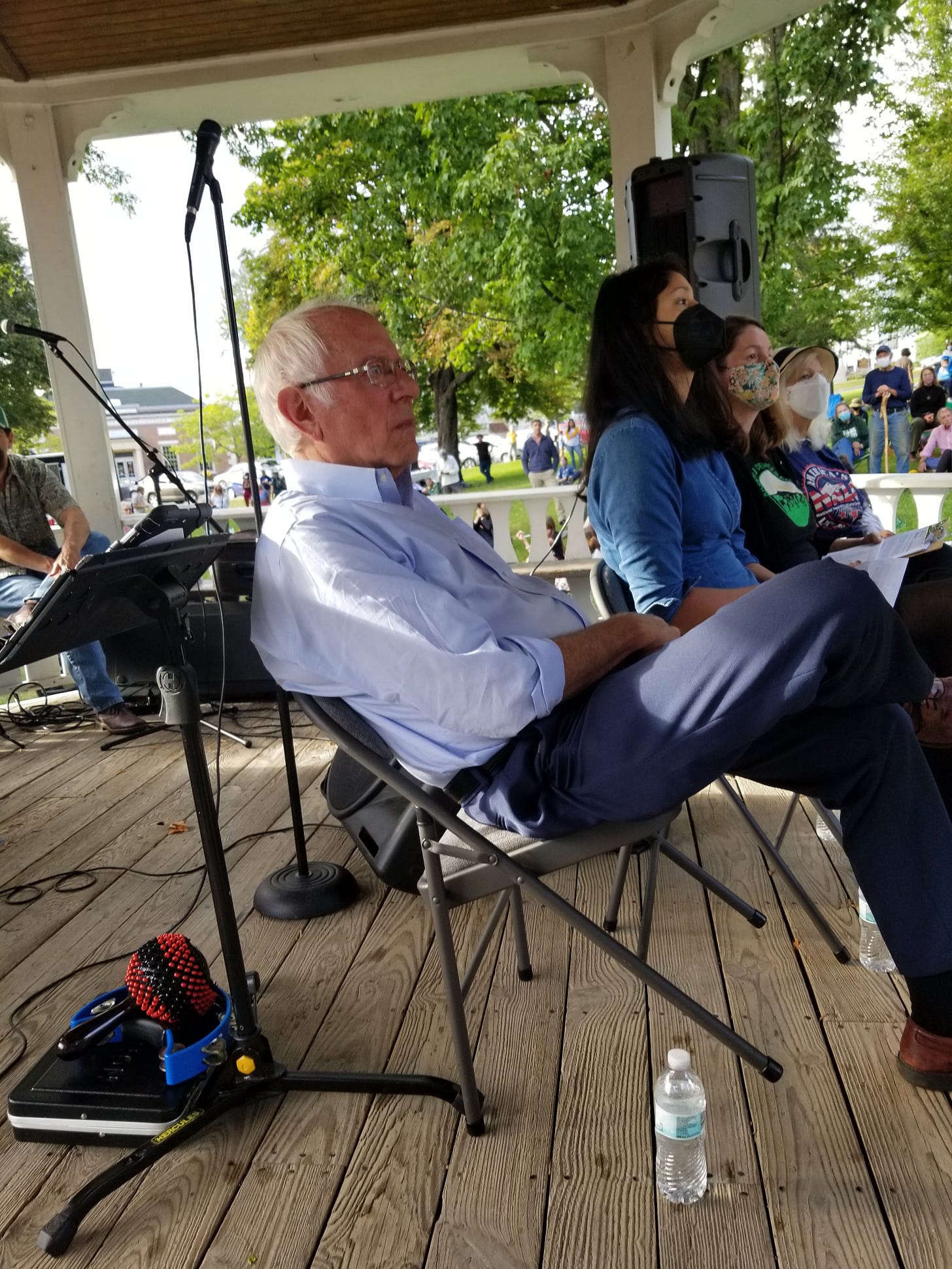Bernie Sanders is the reason that we might be able to pass a $3.5 trillion Congressional package this autumn that the Times tonight correctly called “the most significant expansion of the nation’s safety net since the war on poverty in the 1960s, devising legislation that would touch virtually every American’s life, from conception to aged infirmity.”
It was Bernie’s run for president in 2016 that uncovered an unsuspected, at least by Washington elites, reservoir of progressive sentiment across the country. And now, as chairman of the Senate Budget committee, it’s Bernie that must somehow drag the bill across the finish line, without a single Democratic Senator to spare, and with all the nation’s biggest corporations trying to stop him.
So Sanders has embarked on a nationwide speaking tour to build support, mostly in the crucial states of the Midwest. But for many years he has crisscrossed his own state of Vermont on Labor Day, ending up on the Green in Middlebury for a rally, and this year was no exception. I was there with him earlier this evening, to give a short speech of my own backing his plans and to listen as he explained to a crowd that spread out on the prototypical New England common exactly why the next few weeks were so important. (And also to interview him very briefly for the short pep talk recorded above).
A bipartisan bill will pass the Senate easily, producing a trillion dollars for roads and bridges. But he made the eloquent argument for the much-larger Democrats-only reconciliation bill, focused on what’s been called “human infrastructure”—housing, education, medical care. “We’re not going to build new bridges just to have people sleeping under them,” he said, to roars from the crowd. It also contains the first truly important climate legislation Congress has ever considered, from a clean energy standard to renewable energy tax credits to money for retrofitting homes for energy efficiency. It’s not just the first such legislation—it’s also probably the last with a chance of passage in a time frame relevant to tackling the climate crisis.
But this bill hasn’t yet captured the imagination of the public, in part because the news has been mostly transfixed by other matters, some of them crucial (Texas abortion law, the withdrawal from Afghanistan, Hurricane Ida) and some of the not (did the president look at his watch when he shouldn’t have). There’s another problem, too: this sweeping legislation doesn’t really have a name, beyond “the reconciliation bill,” or “the $3.5 trillion.” It’s as big as the Great Society legislation of the 1960s and even approaches the New Deal of the 1930s, but it’s not as poetic.
If we’re not going to call it the Green New Deal (and it clearly borrows a lot from that set of ideas), perhaps we might go with the “Give Us a Break Act.” We’ve spent the years since Reagan giving endless breaks (tax and regulatory) to the richest men and corporations in the country; they’ve used them to build stacks of cash so high that they can step smartly off towards Mars. But it’s the rest of us that badly need a break now: from the cost of pharmaceuticals and of college and of housing and of childcare. And from the existential dread of worrying about fire, flood, and civilization’s survival.
Bernie’s recommendation, in the remarks recorded above, is that we match the commitment of industry to smash this bill with energy of our own, organizing in every network and organization we can think of to demand its passage. That seems right to me: we’ve got a month or two to put the future on a different trajectory, and then that window may close. We can’t let it.







Share this post